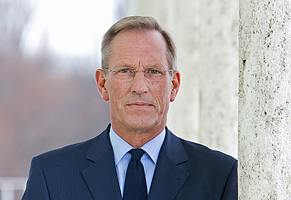Question:
Dear Mr. Diekmann,
With his publication "Das Risikoparadox - Warum wir uns vor dem Falschen fürchten" (The risk paradox - why we are afraid of the wrong things) (Fischer Taschenbuch Verlag, 2014), Professor Ortwin Renn, head of the Technology and Environmental Sociology department (Technik- und Umweltsoziologie - SOWI V) at the Institute of Social Sciences (Institut für Sozialwissenschaften), and director of the Center for Interdisciplinary Risk and Innovation Studies (ZIRIUS) at the University of Stuttgart, has made a new contribution to the debate about risk. Professor Günter Stock, President of the Union of the German Academies of Sciences and Humanities (Union der deutschen Akademien der Wissenschaften), and of the federation of All European Academies (ALLEA) commented, on the day the work was published: "Ortwin Renn's informative book shows that responsible citizens can clearly only be risk-aware citizens."
My question for you is: How exactly can you become a risk-aware citizen?
I look forward to hearing your response.
Regards, Nicola Hengst-Gohlke
Answer:
Dear Ms. Hengst-Gohlke,
Thank you very much for your question of how a citizen can become risk-aware - I am pleased to give you my opinion on this.
We are surrounded, on a daily basis, by small and large risks - that's the reason why insurers exist. For us, risk-aware citizens are those who have a clear idea of the risks they face and who also insure them. Making plans for your retirement provision early on is just as important as wearing a seatbelt when driving. Risk-aware citizens make sure that they minimize their own risks but also, above all, that they do not harm third parties.
But how can you become risk-aware? Many people find it easier to assess the risks associated with road traffic than, for example, financial risks. Above all, you need information and knowledge in order to understand the risks and react to them appropriately.
As an insurer and financial services provider, Allianz has a great deal of knowledge about risks. In addition, we see it as our duty to share this knowledge - and not just during advisory meetings or sales pitches. As a company which acts responsibly we have, for instance, established the "Open Knowledge" Internet platform, where we share information about future risks in the areas of demography, mobility, the environment and finance. We use many of our own studies and publications to make our know-how from many areas available for discussion – for instance, concerning the risks of distraction in road traffic, or the growing significance of cyber risks for companies.
Risk-aware citizens combine knowledge from their own life experiences, from media or company sources, and from friends, and use this to insure and shape their everyday life accordingly. This doesn't mean that we all have to own twenty insurance policies and that we'd be better off just staying at home. You don't have to be "risk-averse" in order to be risk-aware. Even alpine climbers, who conquer the sheerest rock face, are usually far from being daredevils – they have trained, obtained the necessary equipment, studied the weather report and also thought to take out insurance to protect their families.
Exposure to risks can lead to something positive. Entrepreneurial risk, for instance, often precedes innovation and economic power. If people assume risks not only for themselves, but also for others, hero stories emerge. Be it Nelson Mandela, the young Pakistani Malala Yousafzai or Vladimir Klitschko – they all took on great risks in order to change the world.
I hope that more people will critically assess the topic of risk, and that they will also have the courage to participate in our society as risk-aware citizens.
Best regards,
Michael Diekmann
